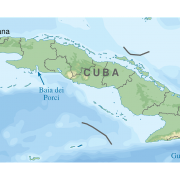What is the Uniting for Peace resolution?
Topic of Study [For H1/H2 History Students]:
Paper 1: Safeguarding International Peace and Security
Section B: Essay Writing
Theme III Chapter 2: Political Effectiveness of the UN in maintaining international peace and security
Historical context: The Acheson Plan
After the outbreak of the Korean War in June 1950, the United Nations Security Council (UNSC) was able to capitalise on the Soviet boycott to authorise a United Nations military coalition to repel the North Korean aggression. In its absence, Security Council Resolution 83 was passed.
However, such fortunes were fleeting. From August 1950, the Soviet delegate returned and cast a negative vote (veto) on a UNSC draft resolution to condemn the aggression by the North Korean forces in the war. In response, the US Secretary of State Dean Acheson convinced the United Nations General Assembly (UNGA) to assume responsibility of maintaining international peace and security, as stated in Article 14 of the United Nations Charter.
Subject to the provisions of Article 12, the General Assembly may recommend measures for the peaceful adjustment of any situation, regardless of origin, which it deems likely to impair the general welfare or friendly relations among nations, including situations resulting from a violation of the provisions of the present Charter setting forth the Purposes and Principles of the United Nations.
Taken from Article 14 of the United Nations Charter.
Resolution 377A(V): Circumventing the Veto
As a result, UNGA Resolution 377A(V) was passed, empowering the UNGA to hold an emergency special session (ESS) to make recommendations on collective measures to maintain international peace and security. This ESS may be called if requested by the UNSC “on the vote of any seven members [nine since 1965], or by a majority” of the member states.
If the Security Council, because of lack of unanimity of the permanent members, fails to exercise its primary responsibility for the maintenance of international peace and security in any case where there appears to be a threat to the peace, breach of the peace, or act of aggression, the General Assembly shall consider the matter immediately with a view to making appropriate recommendations to Members for collective measures […] If not in session at the time, the General Assembly shall therefore meet in emergency special session within twenty-four hours of the request.
An excerpt taken from General Assembly Resolution 377A(V), 3 November 1950.
Also known as the ‘Uniting for Peace’ (UfP), its first application was observed during the Korean War. On 6 and 12 September 1950, the UfP was adopted in response to Soviet vetoes.
A more relevant case study is exemplified in the Suez Canal Crisis of 1956. In response to French and British vetoes of a Resolution 119, the UfP was invoked by the UNSC, enabling the UNGA to hold its First Emergency Special Session on “The Situation in the Middle East”. Notably, Resolution 1000 was adopted, authorising the creation of the first peacekeeping force, known as the United Nations Emergency Force (UNEF I).
The “Uniting for Peace” resolution pointed to the flexible, if not uncontested, mechanisms of the Charter that allowed the United Nations to take action even when the Security Council was blocked. Due to the contentious nature of the decision, this procedure has not been invoked very often. One instance was during the Suez crisis in 1956, when the General Assembly adopted a resolution to send a ten-nation peacekeeping force to supervise the cessation of hostilities. Such agreement was possible since the interests of the two superpowers converged, acting against the veto of France and Britain, which were directly involved in the conflict.
An excerpt taken from “The United Nations: Confronting the Challenges of a Global Society” by Jean E. Krasno.
What can we learn from this article?
Consider the following question:
– How far do you agree that ‘Uniting for Peace’ has enhanced the political effectiveness of the United Nations General Assembly from 1950 to 1997?
Join our JC History Tuition to learn more about the United Nations. The H2 and H1 History Tuition feature online discussion and writing practices to enhance your knowledge application skills. Get useful study notes and clarify your doubts on the subject with the tutor. You can also follow our Telegram Channel to get useful updates.
We have other JC tuition classes, such as JC Math Tuition and JC Chemistry Tuition. For Secondary Tuition, we provide Secondary English Tuition, Secondary Math tuition, Secondary Chemistry Tuition, Social Studies Tuition, Geography, History Tuition and Secondary Economics Tuition. For Primary Tuition, we have Primary English, Math and Science Tuition. Call 9658 5789 to find out more.











